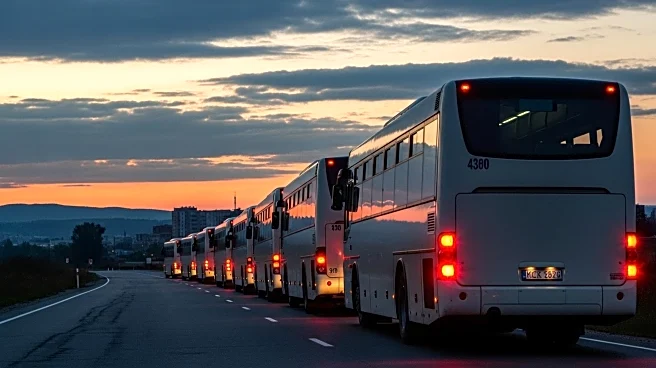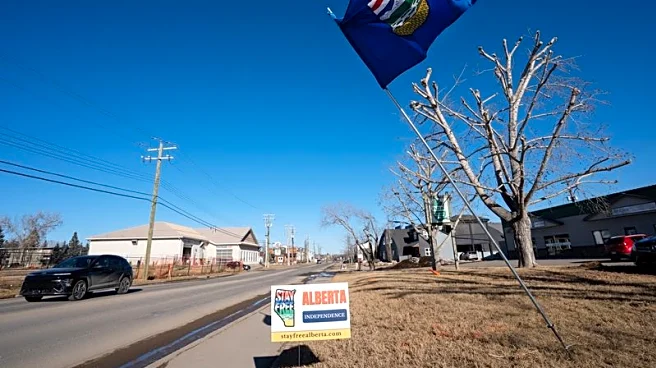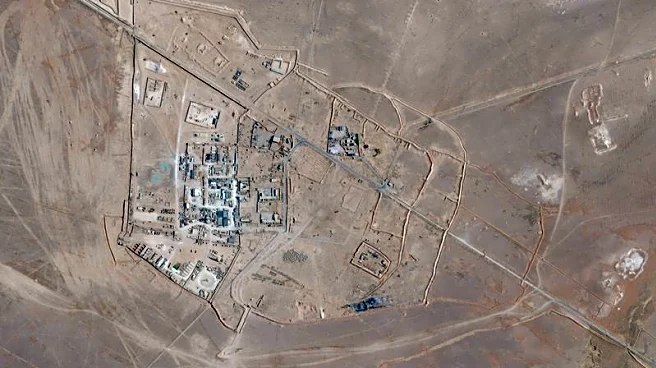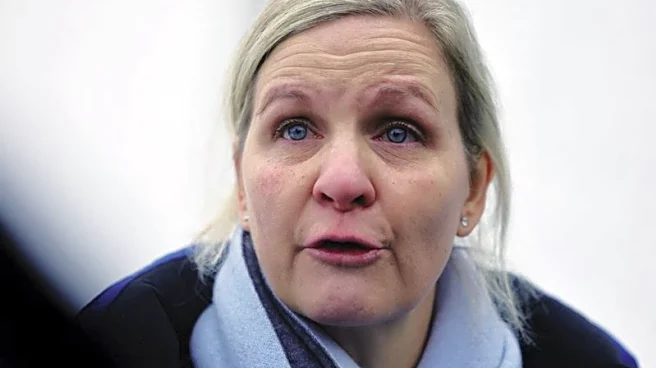What is the story about?
What's Happening?
On October 7, bus drivers in the Eshkol Regional Council faced a harrowing situation as they were called upon to evacuate residents during a Hamas attack. Without protective gear, these drivers entered towns under fire to rescue people, witnessing scenes of devastation and loss. The drivers, who typically transport schoolchildren and residents to community events, became unarmed civilian warriors, navigating through chaos and danger. They encountered terrified evacuees, some covered in soot and blood, and recognized familiar faces among those missing or affected by the violence. Despite the constant rocket fire, the drivers continued their mission, pulling over for safety when necessary and resuming their efforts to evacuate residents.
Why It's Important?
The actions of the bus drivers highlight the resilience and courage of civilians in conflict zones. Their efforts provided a semblance of stability and hope amid chaos, demonstrating the critical role of community support during crises. The evacuations not only saved lives but also offered emotional solace to evacuees, reinforcing the importance of community solidarity. The drivers' experiences underscore the human cost of conflict and the ongoing challenges faced by those living near volatile regions. Their story is a testament to the strength and determination of individuals who prioritize the safety and well-being of their community, even in the face of personal risk.
What's Next?
As the Eshkol region continues to recover, the focus remains on rebuilding and healing. The community is determined to restore normalcy and support those affected by the attacks. Efforts to bring hostages home are ongoing, and the drivers, along with other community members, are committed to the renewal and rebuilding of their homes and lives. The resilience shown by the bus drivers and the community serves as a foundation for future recovery and growth, with a focus on ensuring safety and stability for all residents.
Beyond the Headlines
The story of the bus drivers in Eshkol reveals deeper implications about the psychological impact of living in conflict zones. The drivers' experiences highlight the emotional toll of witnessing violence and loss, and the importance of mental health support for those affected. The community's response also raises questions about the long-term effects of conflict on children and families, and the need for comprehensive strategies to address trauma and foster resilience. The drivers' actions serve as a reminder of the power of community and the human capacity for compassion and bravery in the face of adversity.
















